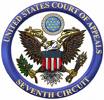Seventh Circuit Week in Review: A Sentencing Remand Based on Mental Disability
 The Seventh Circuit had only one new opinion in a criminal case last week. United States v. Williams (No. 07-1573) arose from a series of bank robberies. Four codefendants were convicted and sentenced to lengthy terms of imprisonment, ranging from 221 months to life. All four defendants appealed on a variety of different issues, although only one, Clinton Williams, obtained any relief. Williams was sentenced to 552 months’ imprisonment, notwithstanding evidence that he suffered from significant mental impairments and had become involved in the robberies only as a result of manipulation by his brother. In light of this mitigating evidence, which was not seriously contested by the government, Williams’ lawyer argued for a sentence at the low end of the 519- to 552-month guidelines range. However, the sentencing judge did not squarely address this evidence. Instead, the judge selected a sentence at the top of the range in light of a report by an expert who evaluated Williams and found that he was exaggerating his disability.
The Seventh Circuit had only one new opinion in a criminal case last week. United States v. Williams (No. 07-1573) arose from a series of bank robberies. Four codefendants were convicted and sentenced to lengthy terms of imprisonment, ranging from 221 months to life. All four defendants appealed on a variety of different issues, although only one, Clinton Williams, obtained any relief. Williams was sentenced to 552 months’ imprisonment, notwithstanding evidence that he suffered from significant mental impairments and had become involved in the robberies only as a result of manipulation by his brother. In light of this mitigating evidence, which was not seriously contested by the government, Williams’ lawyer argued for a sentence at the low end of the 519- to 552-month guidelines range. However, the sentencing judge did not squarely address this evidence. Instead, the judge selected a sentence at the top of the range in light of a report by an expert who evaluated Williams and found that he was exaggerating his disability.
The Seventh Circuit (per Judge Williams) vacated and remanded for resentencing. As the court sensibly observed, there is no logical inconsistency between the evidence that Williams suffered from a mental disability and the observation that he was exaggerating the disability. Indeed, the very expert who made the obervation estimated Williams’ IQ at 72, which is considered borderline mentally retarded. The sentencing judge was required to address this and the other evidence of mental disability, as well as the related claim that Williams’ diminished capacity made him susceptible to manipulation by his brother.
Williams thus joins an interesting line of recent Seventh Circuit cases that require sentencing judges to explain why they reject defendants’ arguments for leniency. I have a forthcoming article about these cases in the Florida State Law Review. As I explain in the article, there are good procedural justice reasons to favor the Seventh Circuit approach. It is unfortunate that other circuits have not adopted as robust an explanation requirement.

